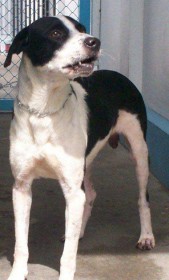An animal with diarrhoea passes a loose and unformed stool that could be either very soft or watery, or even bloody. Now, according to the type of food ingested, the time taken for the food to move from the stomach to the rectum would vary from about six to 10 hours.

During this passage, a lot of food is broken down and absorbed. About four-fifths (80 per cent) of the liquid in the food would have been absorbed. That leaves a lot of solid material in the large intestine (colon). This mass, if the animal is healthy, will be evacuated as faeces via the rectum.
A whole set of factors could influence the abnormally speedy passage of the food through the intestines. For whatever reasons (some of which we will discuss later), if the food is rapidly moved through the intestine, the end effect is the same. As it arrives in the large intestine, the food is in a liquid state, because the movement through the intestine would have been so fast (hypermotility) that absorption of the liquid could not have taken place, and firm stool could not be formed.
Causes of diarrhoea
So what causes this fast movement of the intestines from front to back? Well, for one thing, a heavy worm burden (especially roundworms and hookworms) could be associated with a diarrhoea either directly (creating a stimulus on the wall of the intestine) or indirectly (secondary bacterial settlement in the walls of the intestine). The lesions caused by the larval stages of the worms as they actively bore their way through the wall of the animal’s intestine are a good place for germs to settle and flourish.
Also, any ingested chemical substance, which would cause damage to the covering skin (mucus membrane) of the intestines, could precipitate a diarrhoea. This could be poisons like rat bait or heavy metals. Furthermore, there are several diseases associated with viruses, bacteria, protozoans, etc (gut infections) that could cause diarrhoea.
Parvovirus or leptospira are viral and bacterial diseases respectively which cause severe diarrhoea (often accompanied with the excretion of faeces which is mixed with blood).
Perhaps the main cause of diarrhoea, especially a shortlived one, has to do with the animal’s diet. For one thing, any sudden change in the dog’s feeding habits or a change in the actual food composition from one day to the next, could precipitate a diarrhoea.
This is not so difficult to understand. Certain ‘good’ micro-organisms (bacteria) are needed to help in digestion. Specific strains of these micro-organisms develop and flourish to deal with certain types of food. If there is a sudden change in the composition of the food, then these agents can’t work effectively. A diarrhoea may result.
In fact, new combinations of strains of intestinal micro-flora need to develop to deal with the new type of food. This takes time. If, in a worst case scenario, we switch the food composition again before the new microflora have had time to adjust, then we would be creating even greater digestive upsets. (Actually, as I have said before, dogs can eat the same food for years. There is no need to change the diet often).
I should mention, in passing, that we have experienced cases, where the drinking water offered might be different from that which is usually placed at the animal’s disposal. Something as simple as that could result in a diarrhoea.
Rancid fat, spoiled milk, contaminated meat which has developed poisonous toxins, etc, can all have diarrhoea as a consequence.
Last week, I mentioned poisons. Well, this is a real sore point with us vets. The rat bait manufacturers, for example, make their product so enticing to rats, that young ‘Fido’ also finds the poisoned pellets irresistible. We must really try to place the poisoned bait in areas that are accessible to rats and not to curious inexperienced puppies.
Also, if we must spray our flowers or lawns with pesticides, then we must keep our animals away from the residue which a thirsty animal might drink. Of course, we must store the poisons securely. This may even be a legal requirement.
Finally, it should be recognized that certain animals are easily ‘emotionally’ upset. An apprehensive drive to the vet (quite distinct from travel sickness), the participation at a dog show, even grooming/bathing have been known to create enough excitement which results in a diarrhoea.
Enough of this faecal discussion today.
Please implement disease preventative measures (vaccinations, routine dewormings, monthly anti-heartworm medication, etc) and adopt-a-pet from the GSPCA’s Animal Clinic and Shelter at Robb Street and Orange Walk, if you have the wherewithal to care well for the animals. Do not stray your unwanted pets, take them to the GSPCA’s Clinic and Shelter instead. If you do not wish your pet to have puppies or kittens, you may exploit the GSPCA’s free spay and neutering programme. If you see anyone being cruel to an animal, or if you need any technical information, please get in touch with the Clinic and Shelter by calling 226-4237.









